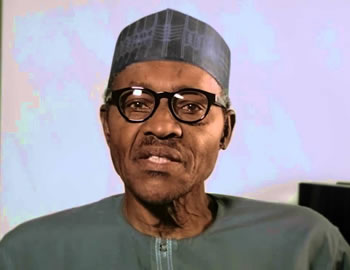After a period of trial and error, Central Bank of Nigeria (CBN) finally settled for the option of currency floatation in view of fast dwindling foreign reserves. While this holds no guarantee of succour, analysts and businesses are taking a wait-and-see stance. However, persistent opposition to any policy likely to weaken the value of naira by President Muhammadu Buhari may further erode any hope of early gains. SANYA ADEJOKUN looks at the issues at stake.
In February 2016, a basket of tomatoes sold for N1,000 at the Deidei Market in Abuja. Just two months later, the same basket was selling for N45,000 at the same market, leading to a huge outcry in the land. What happened was that by late February, a disease known as Tuta absoluta ravaged farms in Kano, Kaduna and Lagos, destroying tomato crop. Incidentally, those three states supply tomatoes during that season of the year in Nigeria. Few months after, it was the turn of other states to supply the commodity and since there was no hindrance such calamity in the states, harvest was plentiful and prices fell. It is a simple rule of demand and supply. Emotions hardly have any useful role to play except to hike anxiety and push prices further up when supply is scarce because of panic buying that will result.
Largely, this is the same scenario with currency exchange or foreign exchange market. The simple rule of demand and supply applies. Terms of trade and balance of trade are essential principles determining how a currency fares in relation with other international currencies. When a country produces abundant goods for export and prices of those goods and services are attractive internationally, there is bound to be generous repatriation of foreign currency within the central bank as foreign reserves and generally in the economy. And if within that economy, there is less demand for foreign currency relative to supply, the local currency consequently appreciates in value. Simple as that.
Currencies rise and fall based upon the performance of the local economy and the sentiment of investors. If a currency is in vogue, speculators can push its value to excessively high levels. If it goes out of fashion, it could fall to extremely low levels. However, sharp movements in a currency can have significant consequences for the economy.
Other factors determining exchange rate include: differentials in inflation between economies; differentials in interest rates (interest rates, inflation and exchange rates are all highly correlated. Central banks exert influence over both inflation and exchange rates by manipulating interest rates, while changing interest rates impact inflation and currency values); current-account deficits; public debt political stability and economic performance.
Nonetheless, when they can get away with it, governments are tempted to inflate the currency because it provides a short-term economic boost as companies charge more for their products and it also reduces the value of the government bonds issued in the inflated currency and owned by investors.
On the flip side, while inflated money feels good for a while, especially for investors who see corporate profits and share prices shooting up, long-term impact is an erosion of value across the board. Savings become worthless by punishing savers and bond buyers although it is good news for debtors, because they now have to pay less value to retire their debts. This thus makes borrowing more attractive, but interest rates soon shoot up to take away that attraction. These were all signs that Nigeria’s economy have been witnessing for some time.
In real terms, Nigeria has never been bold enough to allow the naira to freely compete among its peers in the market place and find its level (not that there is a country that ever fully does that anyway). Naira value has always been fixed by the Central Bank of Nigeria (CBN) supposedly based on a metallic standard requiring International Monetary Fund to look over current account imbalances. However, huge foreign exchange shortfalls and fast deeply depleting reserves left CBN with no option than to introduce floatation, which is ultimately hoped, will moderate forex demands, reduce appetite for foreign goods and force a re-orientation towards exports.
To be sure, the jury is still sitting on whether currency flotation regime is more desirous than the fixed regime. What a country will adopt depends largely on prevailing circumstances.
Among ordinary citizens, there is a sentimental or nationalistic attachment to currencies and its values. Many see currency valuation as a direct correlation to the wellbeing of the economy. Incidentally, modern nations deliberately undervalue their currencies in what is described as currency war as a way of promoting export. Thus, an exporting nation will desire weak currency while it will be in the interest of an importing country to have a strong currency.
In the case of Nigeria, although it is an importing nation, the fact that there is economic crisis coupled with determination of government to discourage importation make weakening the currency a desirable option.
President Muhammau Buhari, like most ordinary Nigerians, desires a strong naira. In 1984 when he was a military Head of State, he refused to allow a devaluation of the naira even though the currency had considerably depreciated. The result was that central bank was subsidising importers at the expense of majority of Nigerians. Again after he was elected President, Buhari has not hidden his abhorrence for a weak currency, arguing that it pauperises the citizens. O numerous occasions, he declared that he was yet to be convinced by proponents of devaluation.
Despite his non-conviction however, common sense forced CBN to introduce a floating currency regime and so, both CBN and Aso Rock can claim the naira was not devalued but depreciated by market forces. What remains now is then to enjoy the benefits accruing therefrom.
To be sure, many still believe that at N282 per dollar, naira actually has gained appreciation in the market. This is because while CBN pegged the currency value at N199 per dollar, majority of Nigerians got it at N370 per dollar at the parallel market from where majority made their transactions. Even banks were selling far above this threshold.
The case of Nigeria’s economy became particularly worrisome as foreign investors- both real and portfolio- took a flight with the country, which was number one investment destination in Africa receded to number four within two years. Investors continued to lose billions daily on the floor of Nigerian Stock Exchange without hope of recovery. Businesses were laying off workers thus compounding already intolerably high unemployment rate. Poverty indices also continued to rise and there was general despondency among citizens.
Upon all these, there were indications that plans by government to float international bonds needed to service inherent budget deficit may not be successful given the downgrade of the economy by rating agencies.
Introduction of the floating regime was thus widely acclaimed by businesses internationally because of its transparency and guarantee but most investors are still taking the cautious wait and see attitude. However, President Buhari still seem angry at the situation of the naira. Speaking at the Ramadan breaking of fast with members of the business community on Monday, June 27 in Abuja, Buhari expressed indignation at the current rate of the naira to the dollar. He lamented what he called “the ruthless devaluation of naira”, saying that he was yet to be convinced about the economic benefits of the exercise.
“How much benefits have we derived from naira devaluation in the past? I don’t like the returns I get from the CBN because that coupled with the demand that let us devalue the naira. In August 1985, the naira was N1.3k to a dollar, now you need N300 or N350 to a dollar. What do we derive from that, how much benefit can we derive from this ruthless devaluation of the naira? I’m not an economist neither a businessman, I fail to appreciate the economic explanation. What has happened to us now is that we have maneuvered ourselves into a mono-economy which led to the collapse we are seeing now.
The President gave the assurance that Nigeria would soon become self-sufficient in rice production within 18 months, adding that 13 states of the federation had been identified for the production of the crop. There is also news that wheat will soon be harvested in large quantities by farmers who have been empowered through a special loan by CBN. And many analysts see this as the way to go in shoring up naira value.
A rolling stone gathers no moss is the old saying and instigating monetary authorities to rescind the recent floatation policy may not augur well for the delicate economy. Given the influence of politicians over central banks in developing economies, Buhari’s utterances may be seen as s signpost for the CBN to jettison the current policy and return to fixed regime. It is important for businesses not to get the wrong signals from political authorities in order not to further elongate the gestation period within which the economy will start to reap the benefit of the current forex regime.






